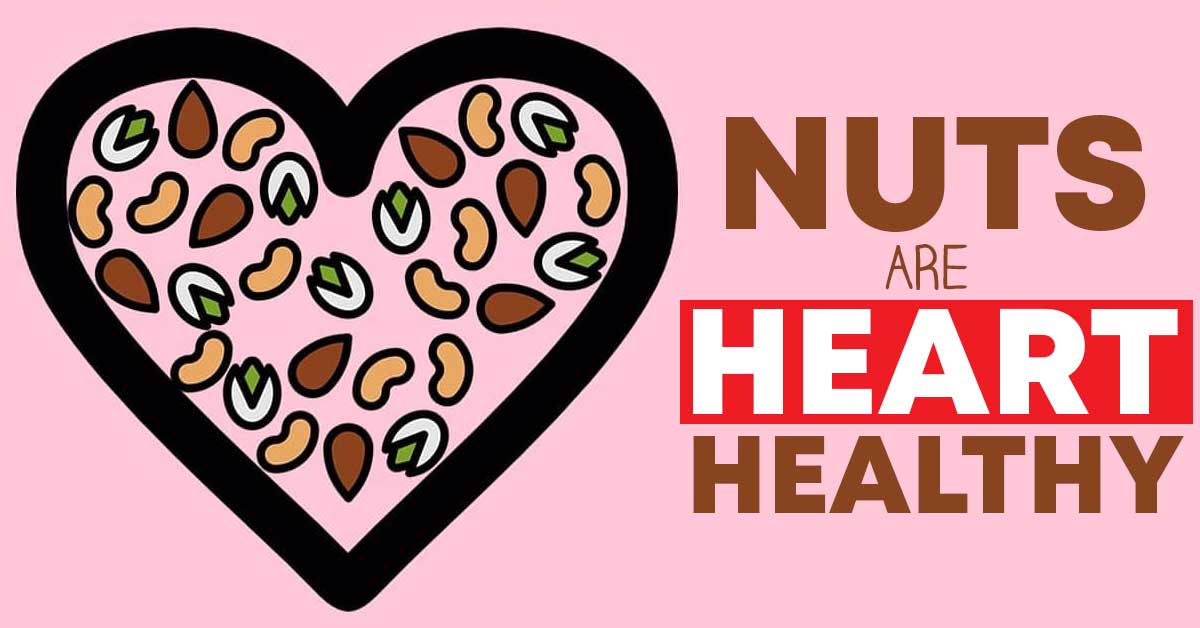Nuts are high in calories and fat.
That combination alone should raise some red flags as to how they could possibly be any good for you? Despite this, in recent years public opinion has begun to shift on eating nuts and positive information continues to circulate.
Heart Healthy
Nuts have been found to improve blood cholesterol – particularly almonds and walnuts. Additionally, nut consumption has been associated with reduced incidences of coronary heart disease.
Even if you are eating a healthy diet, there is evidence to suggest eating nuts can have beneficial effects on oxidative stress, inflammation, and vascular reactivity.
It’s important to remember that oftentimes these nuts were added to diets in these studies in exchange for something else being taken out of the diet. When nuts are used as a replacement for an unhealthy snack, these benefits are more noticeable (the same goes for any time you can reduce or eliminate unhealthy snacking).
Lower Your LDL
If you are someone who keeps close tabs on your cholesterol, you may be familiar with low-density lipoprotein (LDL). We all know high cholesterol is bad, but LDL in particular plays a key role in creating a buildup of plaque in your arteries.
Nuts have been connected to lower levels of LDL and as a result, can improve the lining of your arteries and lower your inflammation that can result in heart disease.
Eric Greene, APRN, CNP had a great article a few years ago that covers information on LDL.
Why are Nuts Able to Do This?
Nuts are loaded with nutrients – many of which are some great “heart-healthy” substances!
Unsaturated Fats – Nuts contain both monounsaturated and polyunsaturated fats which are thought to lower bad cholesterol levels.
Omega-3 Fatty Acids – These heart-healthy fatty acids are commonly found in fish, but also are in many nuts. For those that do not eat fish or meat in general, nuts can be a great way to fill this void.
Fiber – Great for lowering cholesterol and making you feel full.
Vitamin E – This plays a role in stopping the development of plaque in your arteries.
How Many Nuts Should I Be Eating?
Remember, nuts are high in calories and fat (though to be fair most of that is healthy fat). Because of this, the American Heart Association recommends a serving size of 1.5 ounces of whole nuts (about a small handful).
The important thing to keep in mind is how the nuts are prepared. You will want to avoid nuts that are cooked in oil and instead go for raw or dry-roasted nuts. Whenever you can avoid oil on your nuts you will be doing yourself a favor.
Though nut allergies remain among the most common food allergies, those that are able to safely include nuts in their diets should consider doing so for the wealth of benefits they provide.


